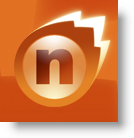At Joyful Jubilant Learning, this month's theme is Learning from the Movies. I just posted my thoughts on this topic over there.

Author Dwayne Melancon is always on the lookout for new things to learn. An ecclectic collection of postings on personal productivity, travel, good books, gadgets, leadership & management, and many other things.
At Joyful Jubilant Learning, this month's theme is Learning from the Movies. I just posted my thoughts on this topic over there.

 I have a couple of interesting, Apple-related tidbits to share with you - and they might be interesting whether you use a Mac or not.
I have a couple of interesting, Apple-related tidbits to share with you - and they might be interesting whether you use a Mac or not.
I love it when things connect. Recently, a couple of connections materialized from a couple of good friends.
First: Ariane Benefit sent me an inspiring post on how she overcame the challenges of Attention Deficit Disorder (ADD) and learned to thrive.
Second: My office-mate Gene shared a book review at Joyful Jubilant Learning (the book was The Head Trip) and began talking about how he was going to delve into neurofeedback as a way to become more focused and productive, and compensate for ADD-like tendencies.
Maybe the first step is to wonder whether you have a problem?
 As someone who is peternaturally curious, I've often wondered if my tendency to flit from one interesting topic or another was normal or not. I still have a tough time drawing the line between "classic ADD" and "easily bored."
As someone who is peternaturally curious, I've often wondered if my tendency to flit from one interesting topic or another was normal or not. I still have a tough time drawing the line between "classic ADD" and "easily bored."
Ariane's story is very interesting. She shared her thoughts and doubts prior to being diagnosed with ADD in a very coherent, rational way - and I think her philosophy applies to just about anyone struggling to overcome a personal challenge.
So, what does ADD look like? General characteristics1 include: (a) difficulty staying focused, easily distracted, not completing tasks (except in some cases "hyperfocusing" on something like a project due tomorrow or fast-moving video game); (b) restlessness/impulsivity/impatience, e.g., can't sit still, blurting/interrupting; (c) problems organizing, planning, prioritizing (often late and hurried); (d) starting projects and not finishing them.
These traits can impact your relationships, self-esteem, and career -- but they are not insurmountable.
Taking responsibility for your own well being
Ariane has taken the bull by the horns and is actively capitalizing on her strengths, rather than falling into the "glass half empty" trap and limiting her aspirations. She shares a bunch of cool stories that provide a glimpse into how she's playing to her strengths.
Gene identified with some of the symptoms he read about in The Head Trip and is exploring neurofeedback, one of the techniques described in the book, to maximize his focus and overcome distractions.
The cool thing I learned from Arian and Gene is that they both used their natural intellectual curiosity to fuel their actions, and weren't satisfied with the status quo. I also learned a lot about ADD, how chronic disorganization may be an indicator of ADD, and how you can cope (and thrive) with ADD.
Still wondering?
Not sure if you have ADD or not? Check out this great article shared by Ariane, "What's it like to have ADD?" to find out more.
Got ADD? Don't worry - you're not alone. Fantastic people like Ariane and Gene have helped me understand some of the differences in how people with ADD engage with the world, and have pointed me to resources to help people with ADD capitalize on their gifts.
Related items
1 "How Do I Know if I Have ADD? Is There a Self-Test?" Read More
 For a long time now, NitroPDF Professional has been my top recommendation for creating, editing, annotating, and combining PDF files. I reviewed NitroPDF in full a couple of years back, and I like their latest version (v5) even more than when I started using it back in the day.
For a long time now, NitroPDF Professional has been my top recommendation for creating, editing, annotating, and combining PDF files. I reviewed NitroPDF in full a couple of years back, and I like their latest version (v5) even more than when I started using it back in the day.
I just got an email offer from V-Com/Avanquest to get NitroPDF Professional at a special price of $49 (that's the price I originally paid, as mentioned in my review). The email invited me to pass it on to my friends, so I figured I'd share the link to the offer and the promo code (NITRO30) here -- just in case you're interested in picking up a copy of this excellent tool.
Don't sit on this too long -- according to the email, this offer is only valid for one week.
Note from May 10: I just tried the link to see if it was expired, and it looks like it still gets you the same discount - pretty cool, but I don't think it will last forever...
Here are some of the feature highlights from the email (and there are more details on their site):
Enjoy!
Read MoreI was in an intersting discussion the other day about time auditing since I've written a good bit about this topic (see "Related items" at the end of this post). The gist of the discussion was, "Time auditing seems like a lot of work and I end up thinking a lot about minutiae - why should I do it?" I can see why folks might feel that way. After all, time audits require an investment from you - of time, attention, and effort.
I'm a certified IT auditor, and I tried to explain the value using analogies from business audits.I'm not sure I entirely succeeded, but wanted to share some of my thinking here to get your thoughts on the concepts. They're very rough, but may be useful.
 Don't audit everything equally
Don't audit everything equally
Keep records of the evidence you've gathered
Write up your findings
Create a follow-up plan
These are just a few ideas to help apply some of the principles of business auditing to your time audits. What do you think? Does this thinking hold up for you? Why or why not? And what other principles do you propose for more effective time audits?
Related items
Read More